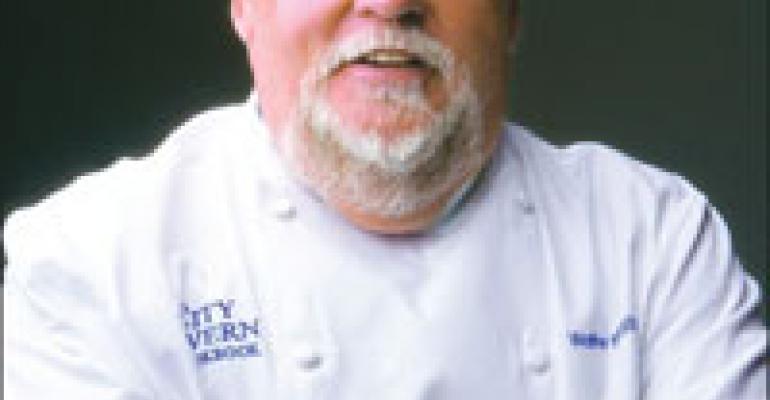At only 4 years old, Walter Staib had already begun what would become a five-decade culinary career by peeling garlic at his uncle’s restaurant. The third-generation restaurateur says that when he was growing up in the Black Forest region of Germany he always knew he would be a chef.
Over the course of his career, Staib worked in some of the world’s most exclusive hotels and resorts. Inspired by his experience as senior vice president of food and beverage operations for Omni Hotels, he founded concepts by Staib in 1989, a hospitality consulting firm that offers a variety of restaurant services, including concept development and menu creation. Staib says that since its creation his company has implemented more than 500 freestanding and hotel restaurants.
You’ve worked in consulting and at restaurants. How are those experiences different?
When you consult you have to be very political because you’re a consultant. You’re not responsible for the bottom line, so you have to mind your P’s and Q’s. At my own restaurant, I don’t have to be political. My own restaurant is not a democracy.
FAST FACTS TITLE: president, Concepts by Staib; chef-proprietor of City Tavern in PhiladelphiaAGE: 61EDUCATION: apprenticeships in Germany, Switzerland, France and ItalyHOMETOWN: Pforzheim, GermanyCAREER HIGHLIGHTS: receiving The Knight’s Cross of the Order of Merit of the Federal Republic of Germany from German President Dr. Horst Kohler; serving as culinary ambassador on behalf of the commonwealth of Pennsylvania; publishing his first cookbook, “The City Tavern Cookbook”
What inspired you to become a consultant?
When I was running all the food and beverage for Omni Hotels, whenever I got really busy and was looking for someone who could take a job away from me, there was no one there. So I decided to start this [company]; I figured there was a need for this.
What do you look for when you travel for business or research?
When I go to foreign countries, I try to study as much as possible to really understand where the food’s roots are and what’s happening. So I spend a lot of time in working and going out in the bush and work side by side to find out what is happening. Certain things you can get from books, but for actual learning there is nothing better than side by side.
What different cuisines are you most interested in right now?
Right now I’m very intrigued by the Sichuan area of China because the people, the employees, are so great to work with. I learn their history and their recipes, and at the same time I bring Western recipes to them. It’s a very harmonious relationship, and it’s great because when I show them how something is done, I can come back a month later and nothing has changed. They’re still doing it exactly like I showed them.
I think the entire Mediterranean rim is going to be a flavor that will be around because it is colorful. It’s exciting and very healthful. I think it’s very attractive to an American audience.
Caribbean cuisine is very exciting and colorful, but I don’t know that it’s going to go very mainstream. It might work in New York or Philadelphia, but I wouldn’t want to take it into the Midwest.
What are some of the best experiences of your career?
This year I was given the medal of the Knights of the Federal Republic of Germany. I don’t even know if there is another chef who has that. It’s usually for doctors, Nobel physicists, stuff like that. It was a great thing when I got this letter from the President of Germany saying I was getting the Knight’s Cross.
But it’s not really about awards. It’s about how many guests I get and how happy they are. When a month goes by and we don’t get one complaint, that’s better than any medal.

